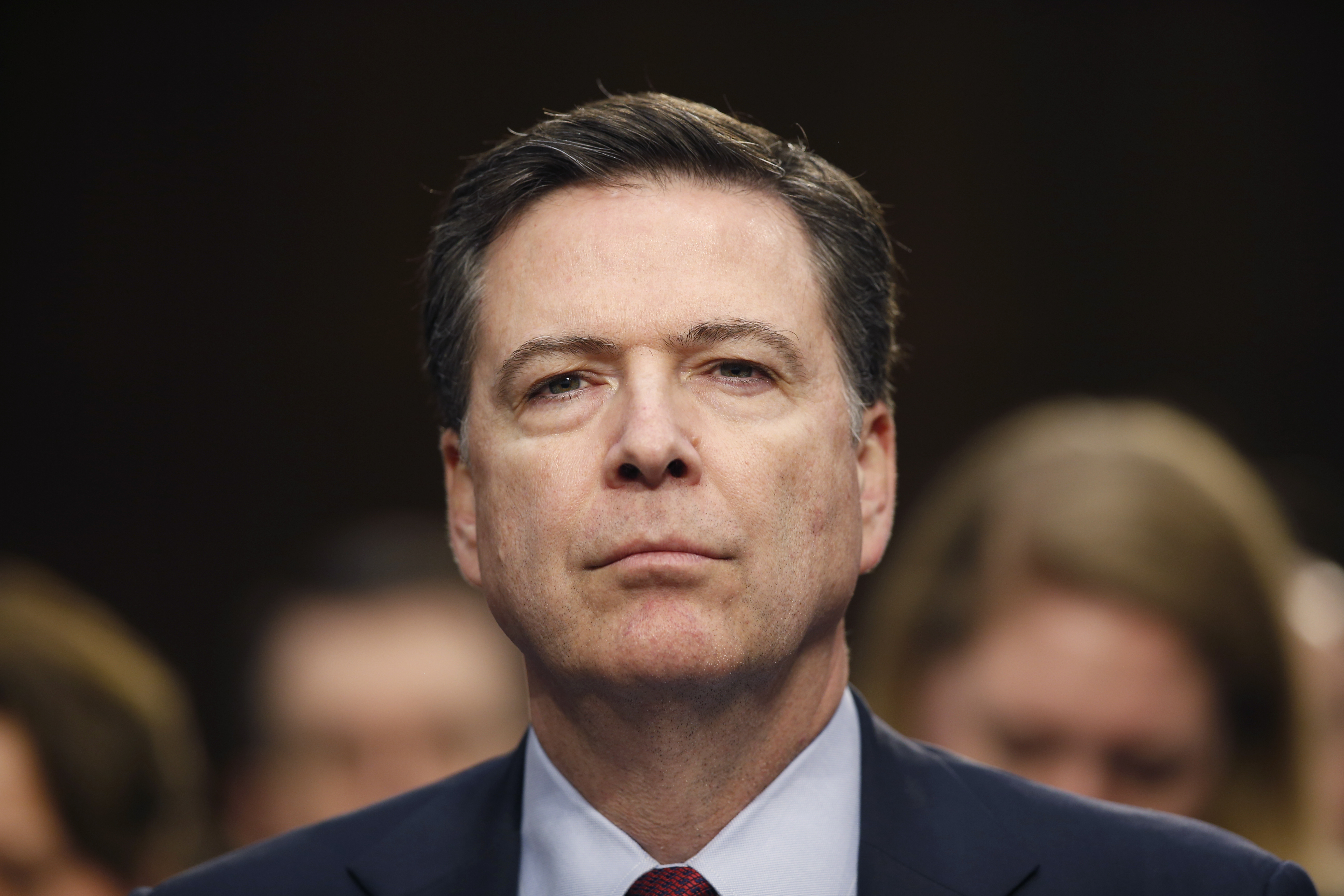Former FBI director James Comey is reportedly planning to confirm bombshell reports that President Donald Trump asked him in February to drop the FBI’s investigation into former national security adviser Michael Flynn – a move experts say may amount to obstruction of justice.
As Comey’s open hearing before the Senate Intelligence Committee looms closer, the Trump administration has sent mixed signals over whether it’s looking into the possibility of invoking executive privilege to prevent Comey from disclosing the content of his conversations with Trump.
When asked whether Trump was considering the option, White House counselor Kellyanne Conway told ABC News on Friday that “the President will make that decision.”
Press secretary Sean Spicer also left the door open. “That committee hearing was just noticed and I think, obviously, it has got to be reviewed,” he said during Friday’s press briefing.
But later on Friday, two senior administration officials told The New York Times that Trump likely will not try to hinder Comey from testifying.
However, legal analysts say it doesn't matter whether or not Trump will invoke executive privilege over Comey, because the action wouldn't hold up under scrutiny regardless.
What is executive privilege?
Executive privilege is the power the president holds to block the legislative and judicial branches from accessing internal executive branch records or information.
Though executive privilege has existed in practice for centuries, it wasn't formally recognized in the US until 1974, when the Supreme Court addressed the issue in United States v. Nixon.
The case centered around special prosecutor Archibald Cox's demand that the White House hand over tapes of conversations between Nixon and his colleagues in the Oval Office with respect to the Watergate scandal. Nixon refused Cox's request, citing executive privilege over the conversations.
The Court recognized the validity of executive privilege and the need for high-ranking government officials to discuss issues with candor without being subject to public scrutiny. But in that specific case, it also found that public interest in getting to the bottom of Watergate took precedent over Nixon's assertion of executive privilege.
Can Trump legally claim executive privilege over Comey?
Experts say that if Trump tries to invoke executive privilege with respect to his conversations with Comey, it likely won't hold any water.
"Executive privilege has traditionally been used to justify the president refusing to make available people or documents within the control of the executive branch," said Keith Whittington, a professor of politics at Princeton University. Comey is no longer under the control of the executive branch, Whittington said, which is why "the executive branch has no capacity to withhold him from Congress."
The successful implementation of executive privilege also depends on whether the official wishes to cooperate with the action. "In this situation, Comey is no longer working for the FBI and may not wish to comply with the privilege," said Jens David Ohlin, an associate dean at Cornell Law School and expert on criminal law.
Ohlin said that if Trump invokes executive privilege and Comey testifies despite that, the administration has two avenues for recourse: an injunction before Comey's testimony, or a prosecution afterward, neither of which would be very helpful for Trump.
"It's highly unlikely a federal judge would issue an injunction," Ohlin said, and that leaves the second avenue of prosecuting Comey for violating executive privilege.
"But violating executive privilege isn't a crime. So basically, if Comey really wants to testify, realistically there's nothing the Trump administration can do to stop him," Ohlin said.

